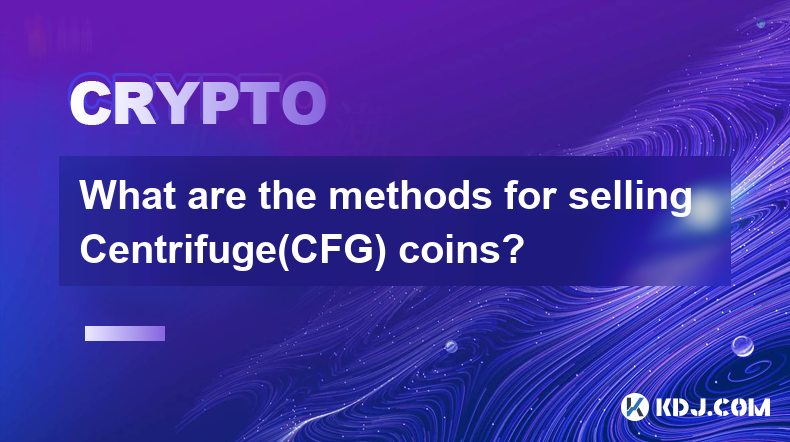-
 Bitcoin
Bitcoin $94,900.9610
0.08% -
 Ethereum
Ethereum $1,777.0522
-2.62% -
 Tether USDt
Tether USDt $0.9999
0.00% -
 XRP
XRP $2.1353
-1.04% -
 BNB
BNB $599.6998
0.09% -
 Solana
Solana $144.5163
-1.58% -
 USDC
USDC $1.0000
0.00% -
 Dogecoin
Dogecoin $0.1685
-2.23% -
 Cardano
Cardano $0.6599
-1.68% -
 TRON
TRON $0.2452
-1.51% -
 Sui
Sui $3.2341
-6.31% -
 Chainlink
Chainlink $13.5500
-1.68% -
 Avalanche
Avalanche $19.7510
-0.28% -
 UNUS SED LEO
UNUS SED LEO $8.7109
0.58% -
 Stellar
Stellar $0.2568
-2.44% -
 Toncoin
Toncoin $3.0243
0.83% -
 Shiba Inu
Shiba Inu $0.0...01256
-2.30% -
 Hedera
Hedera $0.1739
-1.48% -
 Bitcoin Cash
Bitcoin Cash $357.5985
0.37% -
 Hyperliquid
Hyperliquid $20.5224
0.72% -
 Litecoin
Litecoin $83.5744
-4.09% -
 Polkadot
Polkadot $3.9325
-1.11% -
 Dai
Dai $1.0001
0.00% -
 Monero
Monero $286.0631
2.72% -
 Bitget Token
Bitget Token $4.2942
-0.25% -
 Ethena USDe
Ethena USDe $1.0003
0.00% -
 Pi
Pi $0.5789
-2.25% -
 Pepe
Pepe $0.0...07851
-2.10% -
 Bittensor
Bittensor $364.8449
-2.86% -
 Uniswap
Uniswap $4.8840
-2.52%
What are the methods for selling Centrifuge(CFG) coins?
For those seeking to sell their CFG coins, centralized exchanges like Binance and KuCoin offer convenient and regulated platforms, providing access to ample liquidity and competitive trading fees.
Dec 08, 2024 at 08:48 am

Methods for Selling Centrifuge (CFG) Coins
Centrifuge is a decentralized finance (DeFi) protocol that enables real-world asset originators to access capital markets through tokenized real-world assets (RWAs). The protocol's native token, CFG, is used for governance, staking, and transaction fees on the Centrifuge Chain.
If you hold CFG coins and wish to sell them, several methods are available to you:
1. Centralized Exchanges (CEXs)
Centralized exchanges are online platforms that facilitate the trading of cryptocurrencies. They act as intermediaries between buyers and sellers, providing a secure and regulated environment for transactions.
- Binance: Binance is the world's largest cryptocurrency exchange by trading volume. It offers CFG trading pairs against USDT and BTC.
- KuCoin: KuCoin is a popular exchange for altcoins and emerging crypto projects. It supports CFG trading against USDT and ETH.
- Huobi Global: Huobi Global is another major cryptocurrency exchange that offers CFG trading pairs against USDT and BTC.
- Gate.io: Gate.io is a leading cryptocurrency exchange known for its wide selection of altcoins. It supports CFG trading against USDT and BTC.
2. Decentralized Exchanges (DEXs)
Decentralized exchanges are peer-to-peer (P2P) marketplaces that enable users to trade cryptocurrencies directly without intermediaries. They operate on decentralized networks, offering greater control and anonymity to traders.
- Uniswap: Uniswap is the most popular decentralized exchange. It provides a user-friendly interface and supports CFG trading against ETH.
- SushiSwap: SushiSwap is another popular decentralized exchange that offers a range of trading pools and yield farming opportunities. It supports CFG trading against ETH.
- PancakeSwap: PancakeSwap is a decentralized exchange tailored for the Binance Smart Chain (BSC). It supports CFG trading against BNB.
3. Over-the-Counter (OTC) Trading
Over-the-counter (OTC) trading involves direct transactions between buyers and sellers outside of exchanges. It is typically used for large-volume trades or specific requirements.
- OTC Brokers: OTC brokers specialize in facilitating OTC trades for institutional and high-net-worth individuals. They offer tailored services and competitive rates but may charge higher fees.
- Peer-to-Peer (P2P) Trading: Peer-to-peer (P2P) trading platforms connect buyers and sellers directly. They provide a safe and secure environment for OTC trades but typically have limited liquidity and higher transaction fees.
4. Hardware Wallets
Hardware wallets are physical devices that securely store cryptocurrencies offline. They offer the highest level of security but may be less convenient for frequent trading.
- Trezor: Trezor is a popular hardware wallet manufacturer known for its advanced security features. It supports CFG storage and can be used with third-party software to facilitate trading.
- Ledger: Ledger is another leading hardware wallet provider that offers a range of secure storage solutions. It also supports CFG storage and can be used for trading through third-party exchanges.
5. Software Wallets
Software wallets are digital applications that store cryptocurrencies on computers or mobile devices. They offer convenience and accessibility but may be less secure than hardware wallets.
- MetaMask: MetaMask is a popular software wallet that can be used to store, send, and receive cryptocurrencies. It supports CFG storage and can be connected to decentralized exchanges for trading.
- Trust Wallet: Trust Wallet is a mobile software wallet that provides a user-friendly interface and supports a wide range of cryptocurrencies, including CFG. It can be connected to decentralized exchanges for trading.
Disclaimer:info@kdj.com
The information provided is not trading advice. kdj.com does not assume any responsibility for any investments made based on the information provided in this article. Cryptocurrencies are highly volatile and it is highly recommended that you invest with caution after thorough research!
If you believe that the content used on this website infringes your copyright, please contact us immediately (info@kdj.com) and we will delete it promptly.
- Can $1,500 Flip into over $13,500 in Just a Few Weeks?
- 2025-05-07 02:35:12
- BTFD Coin (BTFD): The Next Big Meme Coin Explosion Could Be Right Under Your Nose
- 2025-05-07 02:35:12
- A small group of crypto traders made nearly $100 million
- 2025-05-07 02:30:12
- Maxine Waters Objects Crypto Market Structure Bill
- 2025-05-07 02:30:12
- While top-tier cryptocurrencies dominate headlines, a quiet contender like Render (RNDR) is gaining traction among savvy investors.
- 2025-05-07 02:25:12
- With 2025 Setting the Stage for Massive Crypto Expansion, Investors Are Scanning the Market for the Top Gainers
- 2025-05-07 02:25:12
Related knowledge

BSV transaction fees suddenly increased? How to adjust the handling fee to save costs?
May 02,2025 at 06:42am
Understanding BSV Transaction FeesBSV (Bitcoin SV) aims to fulfill the original vision of Bitcoin as a peer-to-peer electronic cash system. One of the key elements in this system is the transaction fee, which compensates miners for including transactions in the blockchain. Recently, users have noticed a sudden increase in BSV transaction fees, which can...

Does BSV transaction require real-name authentication? Is anonymous trading feasible?
May 03,2025 at 03:14pm
The question of whether BSV (Bitcoin SV) transactions require real-name authentication and whether anonymous trading is feasible is a complex one, deeply intertwined with the broader dynamics of cryptocurrency regulations and blockchain technology. Let's delve into these aspects to provide a comprehensive understanding. Understanding BSV and Its Transac...

How to solve the high slippage of BSV transactions? How to choose between limit and market orders?
May 02,2025 at 09:01pm
High slippage can be a significant concern for traders dealing with Bitcoin SV (BSV) transactions. Slippage refers to the difference between the expected price of a trade and the price at which the trade is actually executed. This can occur in fast-moving markets or when there is low liquidity. To address this issue, understanding the mechanics of slipp...

What if BSV transactions are frozen? How to contact customer service to unblock the account?
May 05,2025 at 05:01am
When dealing with Bitcoin SV (BSV) transactions, encountering issues such as frozen transactions can be a stressful experience. This article will guide you through the process of understanding why BSV transactions might be frozen and how to contact customer service to unblock your account. We will cover the reasons behind frozen transactions, steps to t...

What if BSV node synchronization is slow? How to optimize local wallet performance?
May 03,2025 at 04:35pm
When dealing with BSV (Bitcoin SV) node synchronization and optimizing local wallet performance, it's crucial to understand the underlying issues and implement effective solutions. Slow synchronization and poor wallet performance can significantly hinder your experience with the BSV network. This article will delve into the reasons behind slow BSV node ...

How to check BSV transaction records? How to use the blockchain browser?
May 03,2025 at 06:50am
Checking BSV (Bitcoin SV) transaction records and using a blockchain browser are essential skills for anyone involved in the cryptocurrency space. These tools allow you to verify transactions, check wallet balances, and understand the flow of funds on the blockchain. This article will guide you through the process of checking BSV transaction records and...

BSV transaction fees suddenly increased? How to adjust the handling fee to save costs?
May 02,2025 at 06:42am
Understanding BSV Transaction FeesBSV (Bitcoin SV) aims to fulfill the original vision of Bitcoin as a peer-to-peer electronic cash system. One of the key elements in this system is the transaction fee, which compensates miners for including transactions in the blockchain. Recently, users have noticed a sudden increase in BSV transaction fees, which can...

Does BSV transaction require real-name authentication? Is anonymous trading feasible?
May 03,2025 at 03:14pm
The question of whether BSV (Bitcoin SV) transactions require real-name authentication and whether anonymous trading is feasible is a complex one, deeply intertwined with the broader dynamics of cryptocurrency regulations and blockchain technology. Let's delve into these aspects to provide a comprehensive understanding. Understanding BSV and Its Transac...

How to solve the high slippage of BSV transactions? How to choose between limit and market orders?
May 02,2025 at 09:01pm
High slippage can be a significant concern for traders dealing with Bitcoin SV (BSV) transactions. Slippage refers to the difference between the expected price of a trade and the price at which the trade is actually executed. This can occur in fast-moving markets or when there is low liquidity. To address this issue, understanding the mechanics of slipp...

What if BSV transactions are frozen? How to contact customer service to unblock the account?
May 05,2025 at 05:01am
When dealing with Bitcoin SV (BSV) transactions, encountering issues such as frozen transactions can be a stressful experience. This article will guide you through the process of understanding why BSV transactions might be frozen and how to contact customer service to unblock your account. We will cover the reasons behind frozen transactions, steps to t...

What if BSV node synchronization is slow? How to optimize local wallet performance?
May 03,2025 at 04:35pm
When dealing with BSV (Bitcoin SV) node synchronization and optimizing local wallet performance, it's crucial to understand the underlying issues and implement effective solutions. Slow synchronization and poor wallet performance can significantly hinder your experience with the BSV network. This article will delve into the reasons behind slow BSV node ...

How to check BSV transaction records? How to use the blockchain browser?
May 03,2025 at 06:50am
Checking BSV (Bitcoin SV) transaction records and using a blockchain browser are essential skills for anyone involved in the cryptocurrency space. These tools allow you to verify transactions, check wallet balances, and understand the flow of funds on the blockchain. This article will guide you through the process of checking BSV transaction records and...
See all articles




















































































